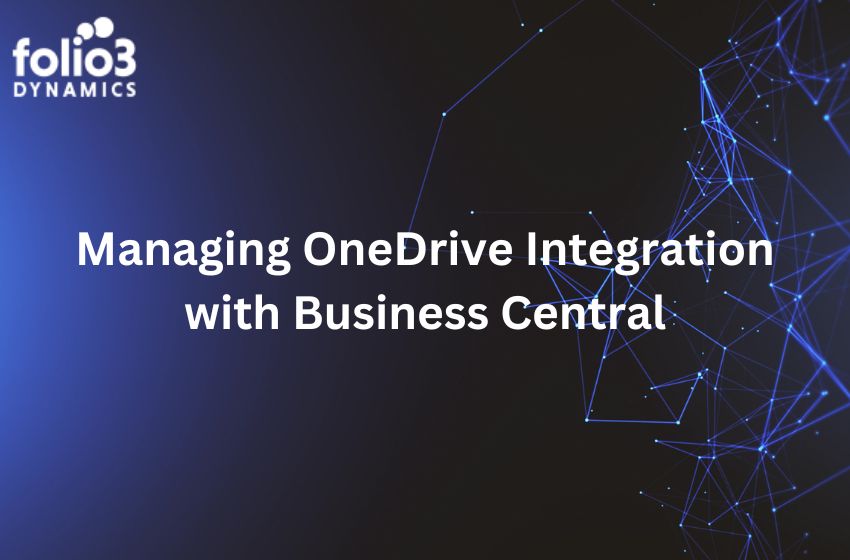Imagine having to run a company with never-ending equipment and inventory at different warehouses; sounds impossible? Honestly, tracking all that information can be challenging, but cloud-based inventory management solutions like Dynamics AX is a great solution. That’s because ineffective inventory management leads to time wastage, and it can cripple down even the most established enterprises. For this reason, it’s essential to invest in top-notch and industry-standard cloud inventory systems to streamline asset management. So, if you want to optimize inventory management, we are sharing all about cloud inventory software in this article!
What Is Cloud-Based Inventory Management?
Before we talk about cloud-based inventory management systems, it’s important to understand what an inventory management system is. Generally, it’s integrated with cost optimization, order management, theft prevention, loss prevention, and supplier communications. For the most part, these features depend on your business needs, but the primary features are the same for all. It provides higher control over reordering and tracking, promising better quality, production, and inventory forecasting.
All these benefits lead to improved business growth and a satisfied customer base. This is because the company needs to manage and track the asset levels, especially when the corporate paradigms are constantly moving around. With an inventory management system, the asset recording and tracking will be centralized, and you can literally have all the information with a few clicks. Similarly, the suppliers will be able to receive delivery requests automatically, hence the ease.
- Automated Vs. Manual Inventory Management
Generally, small-scale businesses choose manual inventory management solutions, such as Microsoft Excel, while more than 45% of small-scale and medium-scale businesses still use notepad and pan to keep track of the stock. That being said, manual tracking is fine when you are just launching a business, but with inventory and business growth, it only becomes a time dump. All these challenges can lead to budgetary issues. For this reason, you can opt for automated inventory management systems for higher productivity and seamless task completion.
- Now, Let’s Talk About What Is Cloud Inventory Management?
Nearly every brand and business tools work with cloud-based configurations. To begin with, the solution providers promise around 99.9% of the uptime. Comparing on-premise vs cloud ERP inventory management, the cloud system offers better cost-efficiency because you will only pay for the features that you need. The users can easily manage the inventory with industry-standard features while providing extra features for other business departments, such as sales, marketing, HR, and others.
For the most part, cloud inventory systems are not device-oriented, which means employees can have access to inventory data remotely. Moreover, the employees can track the products and update the data instantly. It will eventually increase productivity, and even customers will be wowed with efficient operations. It is aimed at widening the profitability standards and ensuring business growth through intelligent features.
Cloud-based inventory management also offers a pathway for automating the business operations since you can scan the barcodes and update the product SKUs. However, it doesn’t mean that software will steal the warehouse workers’ jobs, but their job description will be more strategic. It wouldn’t be wrong to say that employees will be able to drive more value to businesses.
Advantages of Using Cloud-Based Inventory Management for Businesses?
- Error Removal
When it comes down to algorithms, they always work better than human beings at compiling complex data into practical insights. In addition, the algorithms won’t make mistakes (employees tend to make those mistakes). Consequently, the business data will be error-free, and it’s instantly updated without having to add more information. As a result, the chances of errors will be reduced to a minimum, resulting in easier product log reading and error identification. Not to forget, the cloud-based inventory management system promises better inventory data funneling, hence higher efficiency.
- Reliability & Data Security
Imagine your computer having all the data, and it decides to break down out of nowhere. In case you haven’t created a backup, the data will be gone for life, and you won’t be able to import the data back into the computer. All these issues won’t be there if you just start using a cloud-based inventory management system for storing your business data. The best thing about these systems is that they provide automatic backups, and you won’t have to worry about backing up the device. Given the real-time backup and updates, the inventory data will be reliable. On top of everything, the system is completely secure so that data won’t be stolen either.
- Flexibility & Scalability
As your business starts growing, the personnel needs to have updated tools to enhance productivity at work. Similarly, it takes years to design such updates if you don’t have cloud-based software. These systems promise better scalability across different warehouses. In simpler words, you can simply use cloud-based tools to meet the unique needs of the customers. Moreover, these systems are flexible, so you can increase the functionality as your business grows rather than deploying a new software altogether.
- Cost-Efficient & Time-Efficient
These cloud-based inventory management systems are designed over the SaaS model, which means you will pay only for the required features. The data will be hosted on the cloud, which means you don’t need to invest in high-cost servers for managing the inventory, and the system provider will easily handle software updates. In the majority of cases, the systems are designed with easier implementation, and you don’t need technical expertise to use them. That being said, you won’t have to hire an IT team to maintain and repair the errors.
- Transparent Insights
When you have deployed the cloud-based inventory management system, you will be able to track the assets, even if they are moved around. This is because the majority of tools need maintenance or predict the demand, and having access to such information actually improves business functionality. For this reason, the cloud-based inventory system helps provide real-time and transparent insights into data, promising quick decision-making.
- Convenient Access
When it comes down to cloud-based inventory management software, you can access the data from wherever you want because all you need is the internet and a laptop or smartphone. Even more, the sales team will be able to check the stock and close deals quicker than ever before. However, if you implement such a system, it’s best to equip your employees with a specialized rugged laptop for better protection standards.
The Capabilities of Cloud-Based Inventory Management Software
- Software Capabilities
There are different yet familiar software capabilities with cloud-based inventory management software, such as inventory optimization, on-time notifications, immediate reports, in-depth analytics and data, and inventory management at multiple locations. On top of everything, it offers access to various system integrations, so your business can be connected with the tools for better business operations.
- Hardware Capabilities
The cloud-based inventory management system needs various hardware equipment options to complement the functionality. To begin with, you need RFID-based tags for on-time asset tracking for streamlining the business operations and eliminating the chances of theft. Secondly, you need wireless barcode scanners and printers for proper product labeling.
The Must-Have Features for Cloud-Based Inventory Management Software
Sure, you will buy the best solution in mind, but it won’t be effective if it cannot meet your business needs. In the section below, we are sharing some must-have features for these software solutions, including the following;
- The integration and migration must be completed systematically. Make sure that the data can be easily migrated into the new system.
- The software must be customizable to ensure the growing business needs can be met.
- The software should have multi-asset management to see if it can manage different product categories and types while retaining the metadata.
- The system must provide effective and ideal performance, even if the business has to handle larger inventories.
- The system interface must be user-friendly, intuitive, and there must be no clutter.
- The inventory software must have multi-platform support so that personnel can access data from various devices.
- Make sure the system is scalable, and you can scale it according to the growing employee base and usage.
- The system must be secure and provide encryption to protect the inventory data. Also, do add role-based security for personnel authorization.
How To Manage Your Inventory With Cloud-Based Inventory Management Software?
Managing the inventory with cloud-based inventory management software is pretty efficient as long as you subscribe to the right software solution. To begin with, choose the right vendor and make sure the system is deployed correctly. Once these things are settled, you will be able to manage the inventory efficiently and automatically. In the section below, we are sharing some high-performance cloud-based inventory management software solutions, such as;
- Cin7 Inventory Management Software
It is designed to offer omnichannel functionality and automated configuration. It is offered with a POS system and optimizes the system for retailers as well as wholesalers. The software can connect different sales channels to the warehouse and promise higher order fulfillment. In addition, it can support stock management, and there are hundreds of first-party and third-party apps. For instance, this system will help optimize payment management, shipping, online store management, accounting, and retailing.
- TradeGecko
This platform is designed to offer order management and inventory management features. It’s an excellent option for medium-scale and small-scale wholesale and eCommerce businesses. It can be used to combine sales channels, manufacturing, orders, customers, products, and warehouses. In addition, it’s an excellent software for keeping track of KPIs and automating the order-related processes and sync the sales. Moreover, there are non-mobile and mobile-based apps for better stock management and remote shipping management.
- Finale Inventory
This is a great option for warehouse management and manages different eCommerce features across multiple channels. It creates a centralized inventory for managing the order, integrating the sales channels, and creating reports. The combination of these features will ease workflow management, help monitor the stock updates, and provide alerts whenever there are low stocks. What’s best about this software is that it works with WooCommerce, Magento, Amazon, and eBay, hence higher accessibility.
- Fishbowl Inventory
This cloud-based inventory management system is ideal for small-scale and medium-scale businesses, eCommerce stores, and wholesale operators. It can be easily integrated with Xero and QuickBooks for automating the business operations. In addition, it orders warehouse and manufacturing features for optimizing warehouse management, inventory management, order fulfillment, and manufacturing processes. Not to forget, it helps track assets and monitors stock levels.
- NetSuite ERP
This software will provide a combination of CRM, commerce automation, marketing, finance management, and HR management. There are various business management features available for aiding professional services. To name a few, it’s a great option for distribution, wholesale, non-profit, manufacturing, software, and retail industries. On top of everything, it has a real-time dashboard available for quick access to analytics and data.








